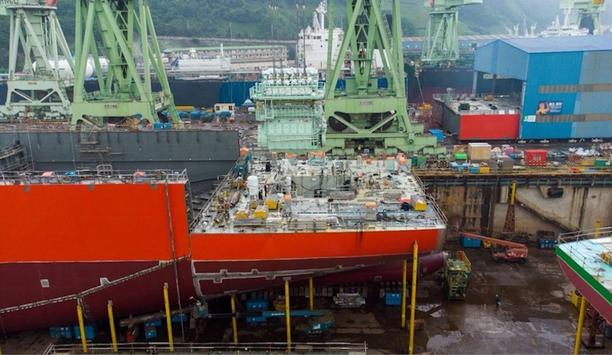DNV has awarded a detailed Approval in Principle (AiP) to Shell International Trading and Shipping Company Limited and Brevik Engineering for their design of a 74,000 cubic metres (cbm) liquid carbon dioxide (LCO2) carrier.
The vessel is specifically designed for the Asia Pacific market to enable cost competitive transport of CO2.
Development of larger vessels
CCS is set to play a key role in decarbonisation of industry in Asia Pacific
Carbon capture and storage (CCS) is set to play a key role in decarbonisation of industry in Asia Pacific. Emitting countries such as Japan, Korea, and Singapore are studying the possibility of shipping substantial quantities of their own CO2 to store locations within the wider region.
This necessitates the development of larger capacity vessels than those currently planned for European CCS projects. Low-pressure cargo tank designs are a key enabler to commercialise these large LCO2 ships to enable transportation of CO2 at lower cost.
Assessment of specific technical challenges
This AiP from DNV covers a comprehensive scope across a wide range of disciplines, including the assessment of specific technical challenges for LCO2 carriers.
Over 50 documents have been reviewed, with special emphasis on cargo tank design, including tank integrity analysis and suitability of material.
Innovative low-pressure shipping technology
The vessel is also designed for future onboard capture of CO2 from the main engine exhaust
With dimensions capped at 290 metres in length and a 12-meter draft to access key East Asian ports, the designed ship mirrors the size of a 174,000 cbm LNG carrier.
It features 15 cylindrical tanks that store 74,000 cbm of liquid CO2 at around −50°C and 6–8 barg, a low-pressure industry standard. The vessel is also designed for future onboard capture of CO2 from the main engine exhaust. This achievement marks a significant milestone in showcasing the viability of innovative low-pressure shipping technology for CO2.
Innovation and collaboration in advancing solutions
Mathias Sørhaug, Business Development Director CO2 shipping, DNV Maritime said: “We are pleased to be collaborating closely with Shell and Brevik Engineering on bringing this innovative gas carrier design to fruition."
"This AiP underscores the importance of joint innovation and collaboration in advancing solutions that support the development of the wider CCS value chain. Scale is essential to drive down the cost of CCS and this work demonstrates the feasibility of large CO2 carriers with a low carbon footprint.”
Feasibility of low-pressure shipping
Lee Teng-Huar, Shell General Manager, Maritime Operations, Asia Pacific and Middle East commented: “After months of technical research, we are proud to have received this detailed Approval in Principle confirming the feasibility of low-pressure shipping with a design that is tender-ready."
"We are excited to see how innovations like this can potentially enhance safety, achieve scalability and flexibility to drive cost competitiveness in the implementation of large-scale cross-border CCS.”
Marine design and CO2 ship logistics
AiP is an independent evaluation of a concept based on a predefined framework of requirements
Evert Grødal, Managing Director of Brevik Engineering AS, is proud to bring the company’s experience in marine design and CO2 ship logistics to the development of this novel low-pressure CO2 carrier, where the key philosophy has been to reduce technological risk and ensure compliance with current regulations.
“Based on a comprehensive technology study, conducted in collaboration with Shell, this innovative design is expected to set new benchmarks in safe, efficient, and sustainable large-scale CO₂ shipping,” he concluded.
Feasibility of the design
An Approval in Principle (AiP) is an independent evaluation of a concept based on a predefined framework of requirements.
It confirms the feasibility of the design and ensures there are no significant technical obstacles hindering its implementation.











